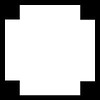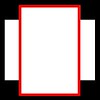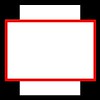Sirene
Introduction
The Sirene is series of plate cameras produced by ICA in Germany. All models are of the folding plate design. They were made between 1914 and 1926. The most common model is the Sirene 135. In 1926, when ICA merged into Zeiss Ikon, the Sirene line was continued with some new and improved features. The Zeiss Ikon models a rare, according to McKeown.
Lens and shutter
The Sirene 135 has an Extra-Rapid-Aplanat "Helios" lens. It's a two element lens, with both elements screwed into either end of the shutter. Its focal lenth is 13cm with a maximum aperture of f/8. A small lever under the lens allows a stepless setting of aperture. A series of 8, 12.5, 18, 25 and 36 is marked on the front plate.
The unnamed shutter has Z, B, 1/25-1/100s setting. It's a two blade shutter. The Z (Zeit) setting corresponds with the T (time) setting. The two five pointed stars at either end of the shutterspeed series may suggest it was made by ICA itself (The five pointed star was ICA's company logo). The shutter can be tripped by a lever or by cable release.
Viewfinder and focus
There are two ways to focus the Sirene. The first way is ground glass focusing through the hood, the second way is scale focusing. You guestimate the distance to the subject and set de distance on the bed of the camera. The folding bed automatically locks the front plate on the "infinity" setting. This can be unlocked by slightly moving this scale towards the center of the camera. The distances marked on this scale are 1, 2,4,6,8,12m and inifinity.
Similarly, there are two ways to compose the image. For total control, you can use the ground glass back. The image of course is upside down and mirrored. Because of the limited lens aperture, f/8, the image is also very dim, even on a sunny day. The viewfinder is made of two small plano-convex lenses with a 45 degree mirror between them. It gives an image as shown in the first picture. Since this viewfinder can be used from the top of the camera and from the left side, images can be composed portrait and landscape.
The viewfinder with the portrait orientation or a landscape composition.
Movements
The front plate is upheld by two columns. Two screws allow for some lens movements. The maximum rise is 1.6 cm and fall is 0.5 cm at most. The "normal" position is indicated on the right column by a small dot. The tilt is in the upward position only and possible to a very limited extent only.
Variations
The Sirene was made in two formats; one for 6×9cm and the other for 9×12cm glass plates. The Sirene 135 was made exclusively for the 9×12 size. (When actually measuring the inner size of the glass plate holders, 9.1×11.6cm would be image format). McKeown notes that economy models were delivered with an f/11 Periscop or f/6.8 Eurynar lens, set in an Ibsor shutter. On one of the links below, an example with a Novar-Anastigmat 13.5cm/6.8 set in a ICA automat shutter is shown.
Links
- Sirene 135 at Frank Petermann's site.
- a good article on camera movements at wikipedia.org.


